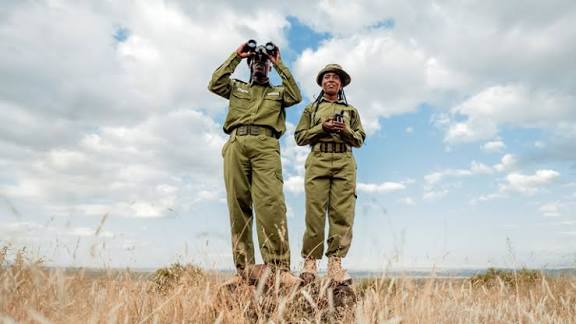Illegal wildlife trade is now valued at between $7-23 billion a year.
As a result, more than 20,000 elephants are killed and over 9,000 rhino poached in the last decade only.
The mental strain on rangers is real, often affecting their colleagues and families.
Resilience mechanism and support systems of rangers in Africa, formed part of discussions at a recently held, 3rd African Ranger Congress (ARC), hosted by the Game Rangers Association of Africa (GRAA) at the Lewa Wildlife Conservancy, in Kenya.
Themed “Improving Ranger Welfare and Standards” the congress was attended by 150 rangers, managers, and partners from 20 African countries.
In a session about stress, trauma, and stigma, speakers Tina Lain (Leader of Upemba Rangers in the DRC), Drew McVey (Regional Programmes Manager at WWF Kenya), Cathy Dreyer (the Kruger National Park’s first female ranger), Sam Taylor (Founder of “For Rangers”), and Munene Kamundi (Founder of Strong Ranger Resilience CIC Africa) spoke at length about mental challenges facing rangers.
Recommendations include peer “buddy” systems and confidential spaces for discussion.
They recommended rangers undergo early counselling after traumatic events.
Rangers were also encouraged to take up sport and recreation as low-cost stress relievers, as well as the inclusion of ranger families in wellness programmes.
Dreyer, said often conflicts with poachers have serious mental health effects, while Taylor illustrated the consequences of unaddressed stress, which may eventually break down a family.
This session also drew on a 2024 survey conducted by WWF, the Kenya Wildlife Conservancies Association, and the Community Wildlife Management Areas Consortium (CWMAC), to understand the perceived challenges faced by community rangers.
The team surveyed 650 rangers across 72 protected and conserved areas in Kenya and Tanzania.
About 97% of respondents expressed strong affection for their job.
Picture: International Fund for Animals

